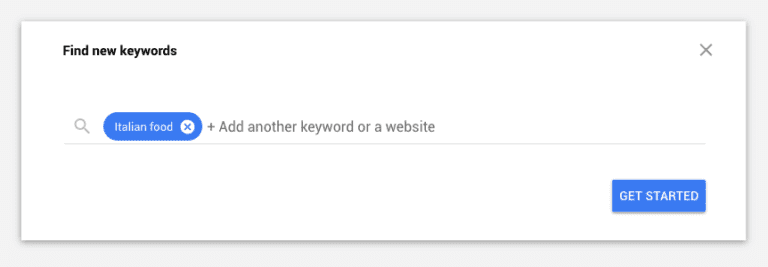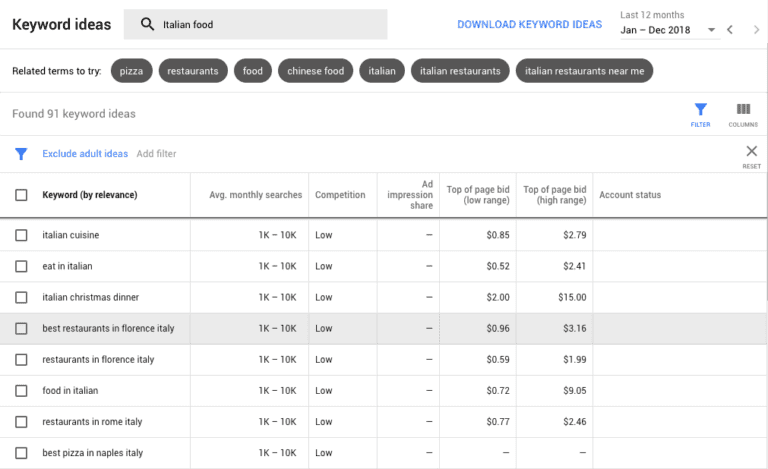Keyword research may be the most critical aspect of digital marketing and search. The ability to rank for the right keywords – and attract the right audience – can transform your business.
Keywords not only give you a way to boost your search rankings on Google and other websites, but you gain valuable insights into the way your customers think. It’s a way for you to see inside their heads on specific challenges, changing demands and even gauge what they think of your product or services.
And, it all starts with a word or phrase typed into a search box.
Which keywords are the right ones for your website?
Ah, if only there was an instant, easy way to find out! (Psss, we’ll get to that more later). Unfortunately, like most things in the marketing realm, you must test, test, test.
There are a variety of keyword research tools available, or a webmaster may be able to see how a search led someone to your website.
But you still must figure out what traffic is truly worth it to you – which keywords lead to conversions? Which are tied to customers that fit your target personas?
There are a few strategies you can employ to put you on the right track:
1. First, use some common sense to rule out some poor keywords.
2. Ask yourself if the keywords you’re currently ranking for even apply to your business or website. Do they help people find what they were genuinely searching for – or do the keywords take folks down a strange path.
3. Will the keywords help boost your business? For example, if people are coming to your site because they search for “Chocolate Cake” – do you in fact sell chocolate cake and is that an important part of your business?
4. Another approach: take a look at websites that already rank for the keywords you may be targeting. Reviewing other websites can give you valuable clues into what content is helpful.
5. Taking this one step further, you can also invest in a small keyword campaign via Google or Bing. This will allow you to truly test a keyword to see what happens – does the traffic actually convert? You can do this for a modest number of clicks – under 500 – to gather some early analysis of how that keyword might work for you.
How to find keywords (the right keywords)
Figuring out what keywords to use requires a lot of detective work. Many people kick things off using Google Ads Keyword planner. It can provide you with a list of suggested keywords, along with search volume and an estimated cost.
Keyword tools can cut out some of the grunt work by providing some additional details up front, such as estimated click-through rates, more accurate information, related keywords and more.
While you research, don’t rule out the long tail. The long tail consists of words or phrases that are searched far less than the most popular terms – but there are many more words and phrases to choose from.
You may be surprised at how well some of these terms convert. For example, the term “Italian food” may be a popular general search, but “Best Italian Brunch North Beach San Francisco Saturdays” may attract searchers who are ready to buy – now!
Keep international audiences in mind
The nature of business today can make keyword research even more complex. Business today is fast, digital and global – and consumers’ expectations have skyrocketed.
Online audiences expect to be spoken to in a way that is familiar to them and meaningful. Doing so can make or break that click – but also make or break your brand.
In other words, you must nurture your current customers and prospects, and treat every interaction as a stepping stone in the evolution of a relationship.
If you’re still skeptical about the importance of keeping things local, consider the following:
- 50% of people who search on their smartphones go to the store they searched for within one day.
- Four out of five people use their phones to research local businesses.
- People browse the internet using words and terms that are natural to them – so your ads should reflect this behavior at the local level.
An easy tool for keyword research
Introducing MatchCraft AdVisor, a go-to, comprehensive keyword research tool. Not only can you research target keywords, but AdVisor comes with templated ad content in more than 23 languages and dialects.
This is where MatchCraft’s ability to make local markets and interactions more meaningful and relevant shines. Use AdVisor as a foundational tool to help you craft local marketing campaigns that work – in any industry, in almost any language, in any market.



